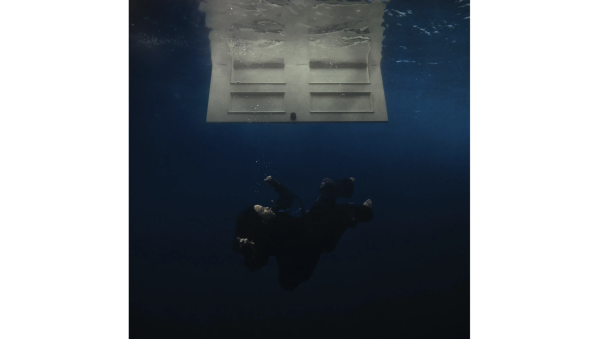Sustainable Fashion at Seattle U Creates Community

Whether the motivations are expanding one’s closet or shopping sustainably, Seattle University students have caught on to the popular trend of thrifting. In college, where affordability is a major factor, this trend addresses two concerns: the need for sustainable fashion and the desire to shop.
Two Seattle U organizations—the Gender Justice Center and the newly founded Seattle U Thrift Club—have created spaces where students can find clothing at little to no cost.
In fall 2021, one of the Gender Justice Center’s Liberation Stations was a clothing swap. Since then, the center has had an abundance of leftover clothing that they recently converted into a permanent Community Closet outside the Gender Justice Center’s office in Chardin Hall.
Fourth-year student Keira Cruickshank, who is studying sociology, creative writing and Spanish, is a member of the leadership team at the Gender Justice Center. She explained the importance of having a permanent and accessible clothing exchange because local thrift stores have rising prices and gender-affirming clothes may not always go to the people who need them.
“I think clothing exchanges are really important as a way to provide access to clothing that has limited barriers,” Cruickshank said. “We wanted to create a space where anyone can come take the clothes whenever they want, and then anyone can also leave clothes so that we can have a more circular economy of clothing here on campus.”
The Community Closet officially opened March 2 and students were invited to donate and exchange clothes. First-year Psychology major Sophia Hounton who attended the event, shared why she feels the closet is a valuable resource.
“When a bunch of people who are generally economically well-off participate in thrift stores, prices can inflate and take that resource away from people who rely solely on thrift stores,” Hounton said. “I think that this is a great way to combat that issue and still let that be an isolated resource for our community, without detrimentally affecting the resources that are present for the greater Seattle community.”
For the Gender Justice Center, it was especially important to focus on environmental and economic causes, as the need for clothing without economic barriers is essential for some college students. Recycling clothes via the Community Closet allows community members access to clothing they may need while consuming in an environmentally conscious manner.
The Gender Justice Center is not the only clothing resource for students. The Seattle U Thrift Club was recently founded and will officially be launching in spring quarter.
The Thrift Club’s goal is to create a store where clothes can be bought from students and then resold for under $10, with all proceeds going towards an organization of the club’s choice—this year it is Out of the Closet.
The new club isn’t only focused on creating a store as they are also hoping to make their organization a community-based club with excursions once a month to local thrift stores or stores with sustainable clothing around the Seattle area.
The President and Founder of Thrift Club Amanda Perez, a first-year philosophy and psychology major, hopes that the club will make a difference when it comes to the shopping choices of students.
“Fast fashion has become so accessible to everybody,” Perez said. “To some degree, it is needed for people who can’t afford the slower fashion items that come with very high prices. What we’re trying to do is basically provide people with an opportunity to stray away from fast fashion, to give back to their community and also to get a chance to sell their clothes.”
For both the Gender Justice Center and the Seattle U Thrift Club, these respective resources—the Community Closet and the Thrift store—are aimed at supporting the LGBTQ+ community and recognizing the importance of gender-affirming clothing.
In past clothing swap events, the Gender Justice Center gave priority to trans and non-binary students to come anonymously take the clothes they wanted. The hope is that the Community Closet will be a similar resource.
“Access to clothing where people can anonymously come and take what they want is something that we really think is important, especially as a center that supports trans, non-binary and female students on campus,” Cruickshank said.
The Seattle U Thrift Club is looking to sell clothing out of the LGBTQ+ Office of Multicultural Affairs Lounge and has made the effort to have gender neutral services and labels, so that all people—no matter how they identify—feel welcome. All of the clothes will be set out separated by garments, not gender.
“We’ll have a rack of shirts, a rack of pants, a rack of clothes, which won’t be based on women’s or men’s [sizing] because we don’t feel like that’s how clothing should be and how the clothing industry should be,” Perez said.
The Seattle U Thrift Club and Gender Justice Center invite all to get involved. The Thrift Club will be open to anyone to buy and sell clothes and become an active member of the club which will give them opportunities to work at the store and go on excursions. The center is currently accepting applications for next year’s leadership.
Both organizations can be reached on their Instagram pages @suthriftclub and @genderjusticesu.









